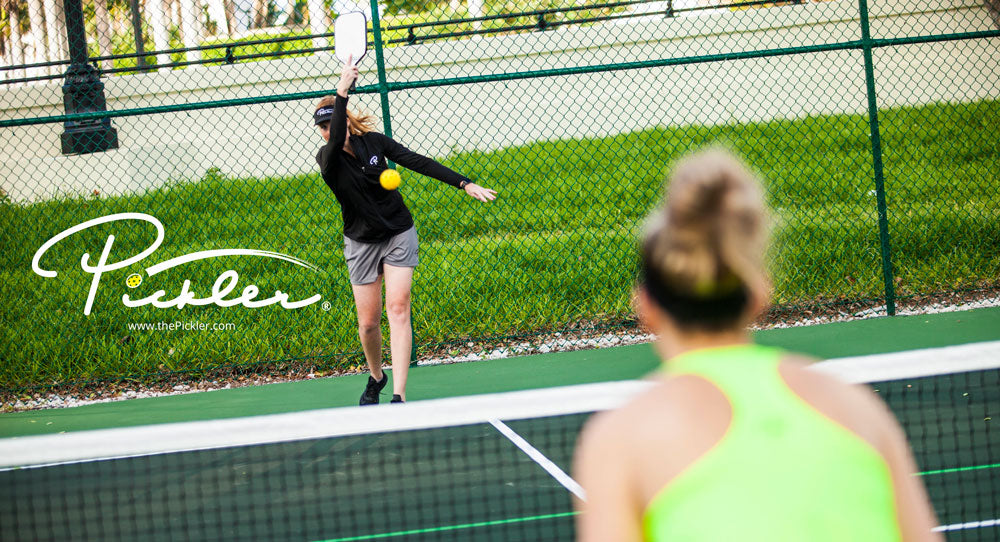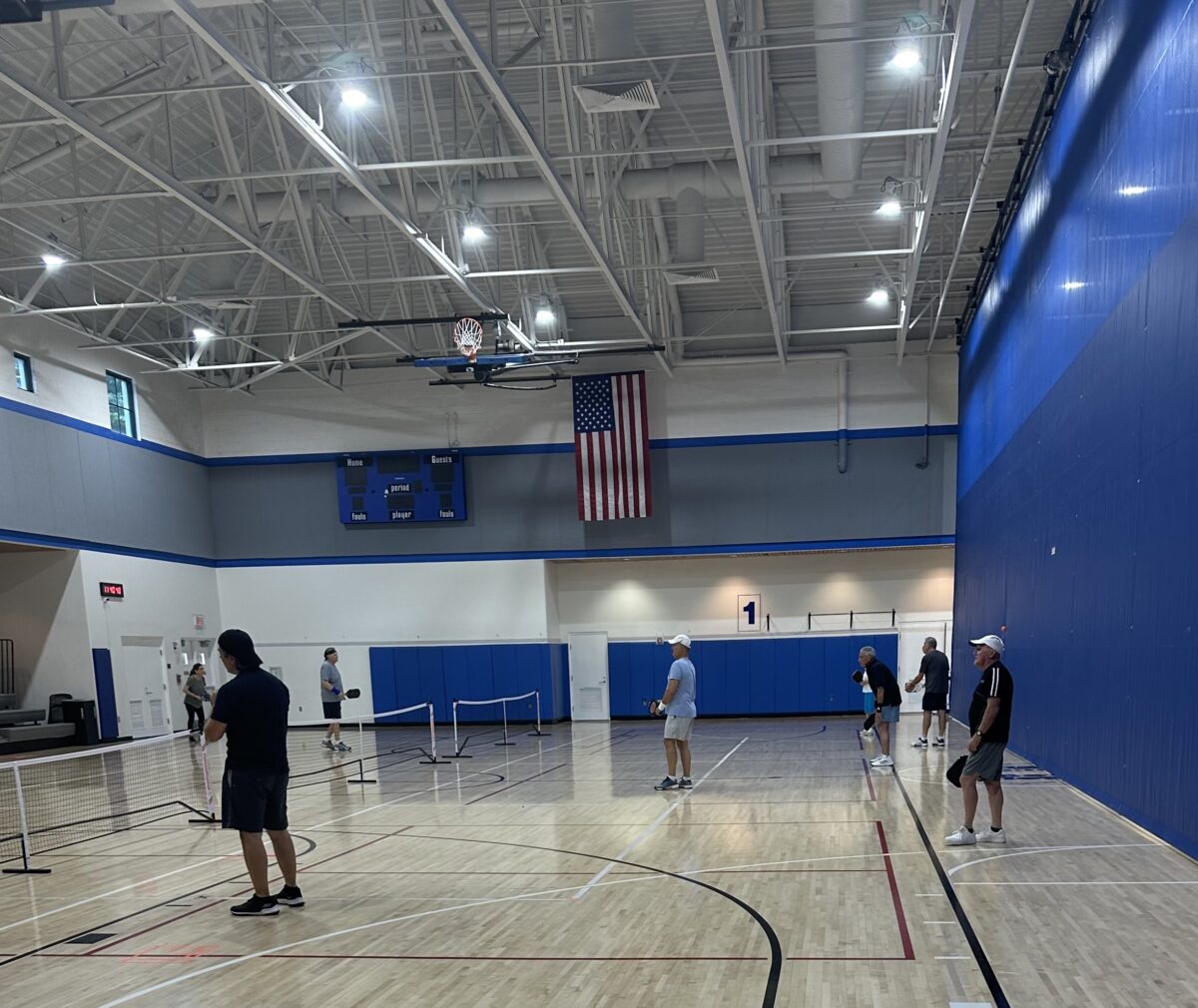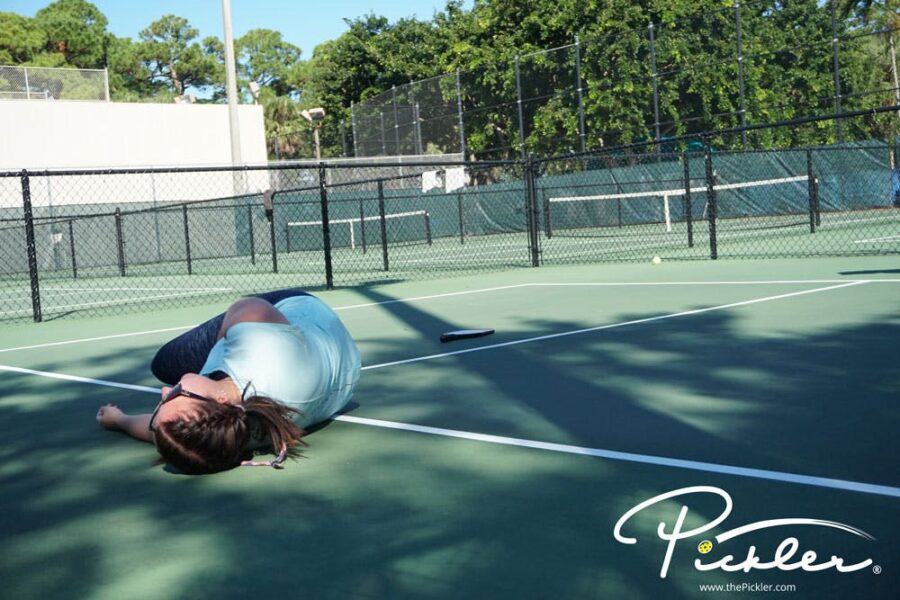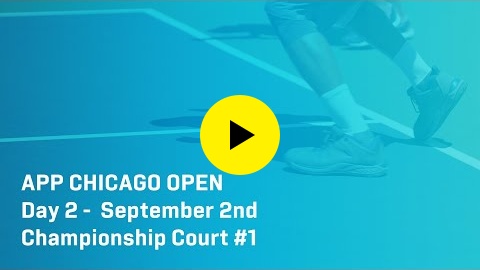As the temperature drops and winter approaches, many pickleball enthusiasts find themselves deciding between braving the chill in the air or shifting their games from outdoor courts to indoor facilities. Playing pickleball indoors or playing outside in cold weather each presents unique challenges, but with the right adjustments to your technique and equipment, you can thrive in any environment. Adapt your game seamlessly and keep your competitive spirit alive all season long with these pickleball tips and considerations:
PLAYING PICKLEBALL OUTSIDE IN COLD WEATHER
Dress Appropriately – If you do brave the cold in favor of playing outside, it’s important to wear layers and appropriate apparel designed for cold weather.
- Layer Your Clothing – When it comes to cold weather pickleball attire, layering is key. Aim for stretchy fabrics that provide warmth while also allowing for the full range of motion needed on the pickleball court. Clothing designed to be moisture-wicking, waterproof, or windproof can help keep you dry by drawing sweat away from your skin and protecting you from wind and moisture. Look for features like adjustable cuffs and hoods for added protection against the elements.
- Choose the Right Footwear – Opt for shoes with good traction to prevent slipping. Look for winter-specific athletic shoes with waterproof materials and a thicker sock lining for warmth. Remember, a reliable grip will enhance your stability and performance on the pickleball court. It’s also helpful to have shoes that provide good ankle support to help prevent injuries on slippery surfaces. If you plan on playing in extreme cold, consider adding thermal insoles to keep your toes warm.
- Protect Your Extremities – Hands and feet tend to lose heat quickly, so keeping them warm is critical. Invest in a quality pair of gloves designed for racquet sports. Look for gloves that provide grip and dexterity—this allows you to maintain control of your paddle without sacrificing warmth. If temperatures drop significantly, consider hand warmers that fit into gloves or pockets. For your feet, opt for thermal socks made from a cushioned, moisture-wicking material. These will not only keep your feet warm but also cushioned during intense rallies.

Select the Right Equipment – Cold weather can cause the pickleball to be more brittle and therefore, more prone to cracking. Opt for a pickleball that is designed for outdoor use in various weather conditions.
Protect Your Equipment – Avoid Extreme Temperature Changes. Be careful of leaving your pickleball paddle outside or in your car. Treat your pickleball paddle like the prized possession it is and bring it inside when you are not using it. If you leave your pickleball paddle – or pickleballs – outside or in your car, they may be affected by weather conditions. Avoid this needless wear and tear on your pickleball paddle by bringing your pickleball equipment indoors when you are not using it.
Adjust Your Strategy and Technique – The colder the temperatures and the lower the humidity index, the harder the pickleball will generally be, which has a tendency to speed up the pace of play. Pace on the pickleball court can be a weapon, as many pickleball players struggle to handle power and speed. However, if you find a pickleball game to be happening fast, try to slow the game down. Take your time, set your feet, and execute your shot. Find a way to gain time by selecting shots that give you more time to react and prepare from shot to shot. To do this, try the following shots:

- Hit deep serves and deep returns of serve. By keeping your opponents back in the pickleball court, they will have to hit the pickleball a farther distance, which takes more time. So, hit quality serves and returns of serve that are deep in the court.
- Avoid speeding up the pickleball. If you are trying to slow down the game, then, it may go without saying, but avoid speeding it up. Stay in the “low and slow” game. In other words, hit quality dinks that mix spin, placement, depth, and pace around the Non-Volley Zone. And, if your opponents speed up the pickleball, consider resetting and neutralizing the speed-up shot, unless you have a clear put away or counterattacking winner.
- Consider using a well-timed lob. Lobs can be both offensive and defensive. However, in either case, the extra height on the pickleball can give you extra time to re-adjust and reset.
Do NOT Play on Wet Pickleball Courts – Wet pickleball courts are slick, which will likely result in a player falling on the court. Avoid wet pickleball courts, and wait until the pickleball courts are dry. To test whether a pickleball court is wet, put your weight on the toe of your shoe and twist with some strength. If water rises or moves when you twist your foot, the pickleball court is wet and is unsafe for play.

Stay Hydrated – Dehydration can occur even when you don’t feel hot or sweaty. Make sure to drink plenty of water before, during, and after your games. Consider bringing a reusable water bottle and take regular sips to prevent dehydration.
PLAYING PICKLEBALL INDOORS
The Floor Surface and Ball Matter – In outdoor play, you will find a hard-court surface and a lot of pickleball players using the Dura Fast 40 or Franklin X-40 pickleball. However, when you go indoors, this can change.
- Indoor Gym or Wood Floor: On an indoor gym or wood floor, you will find pickleball players using an indoor pickleball (e.g., a Jugs or Franklin X-26 pickleball), which is a different type of pickleball that is a bit softer with a bit more bounce. As a result of these different indoor pickleballs for this court surface, the indoor game will automatically be a bit slower and a bit higher than the outdoor game. This will result in a more drives (as opposed to drops) in indoor play, as the pickleball will have a tendency to sit up high with the bigger bounce. Further, the pickleball net will likely be a temporary net, which tends to favor more drives (as the net cord can be more forgiving). The indoor balls also have a tendency to skid and skip on the gym or wood floor, so spin plays a larger factor in indoor play.
- Indoor Hard-Court Surface: If you find yourself on an indoor hard court, then things will be a bit different than a gym or wood floor. You will likely still play with a Dura Fast 40 or Franklin X-40 pickleball. With this harder pickleball, and no wind or other elements to deal with since you are indoors, the game will be faster. In other words, drives will fly through the air a little faster and be more difficult to control your power on. The game will also be more consistent in this environment.

Different Elements – The elements also differ between indoor pickleball and outdoor pickleball. In outdoor pickleball, you may have to deal with some menacing wind or the sun, which at times can blind you. You will not have either of these elements in indoor play. Rather, you will have to deal with poor lighting, blurry rafters, and, sometimes, a slew of multi-colored lines. These different challenging elements will make lobbing a much more popular and effective strategy in indoor play. Also, based on lighting and backdrops, one side may be much easier to play on in indoor pickleball because it will be easier to see the ball (this side advantage is similar to outdoor pickleball with the wind and sun at times).




